Everything you need to know about drinking on planes
- Published
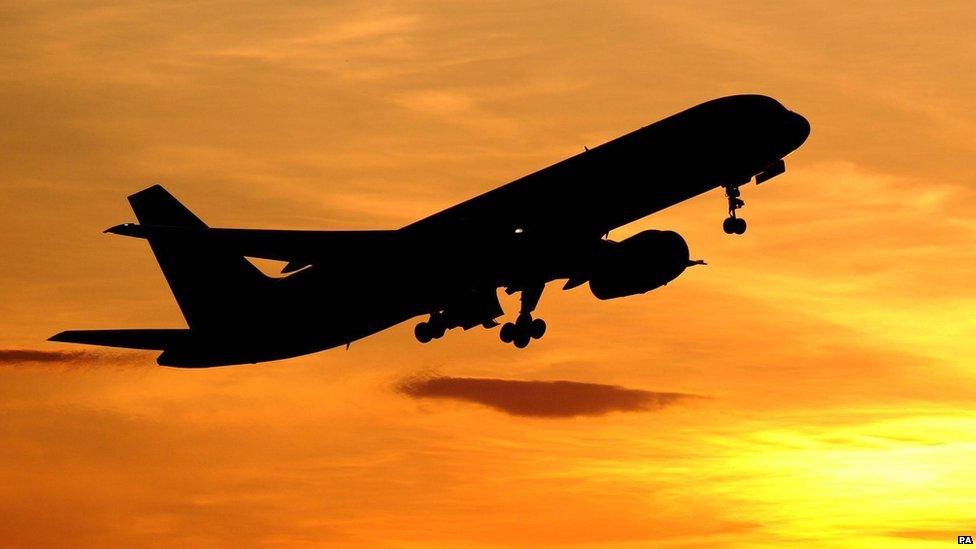
If you're reading this in your shorts and flip-flops, with your suitcase packed and on your way to the airport - you're not alone.
It's the busiest day of the year for UK flights, with 8,000 planes expected to pass through UK airspace.
If you're looking forward to a cheeky drink after take-off, you might want to read this first.
BYOB flying
Opening your own alcoholic drinks on flights has long been discouraged in the UK.
You're only allowed to drink alcohol your own airline provides.
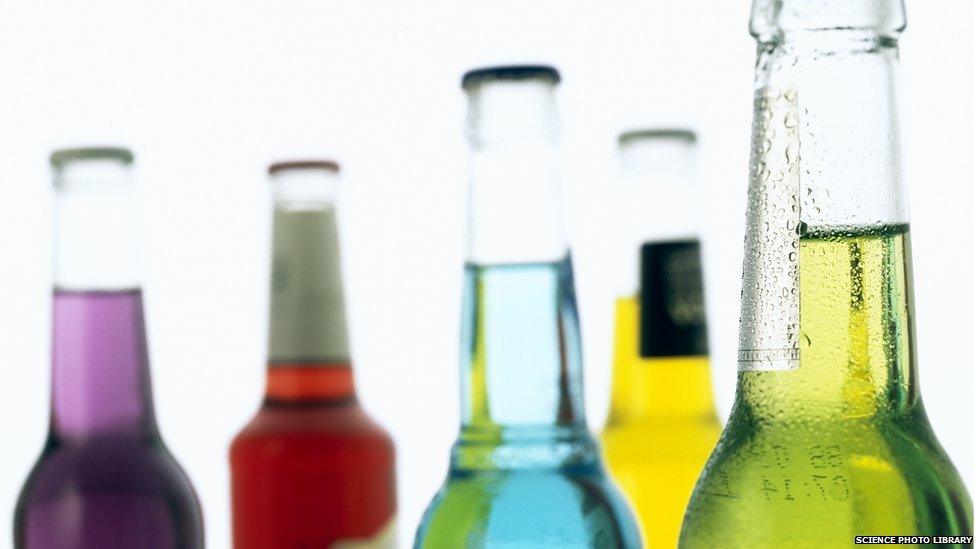
Earlier this week, Ryanair went a step further to try to stop that rule being broken.
Passengers flying to Ibiza will now have to wave goodbye to any booze you've bought at the boarding gate.
So if you're travelling with the airline, any alcohol bought after security checks will have to go in a suitable bag in the plane's hold or be thrown away.
Cabin baggage will be searched at the gate and anyone trying to hide drinks could be stopped from boarding.
Ryanair says it's for the "comfort and safety" of passengers and crew.
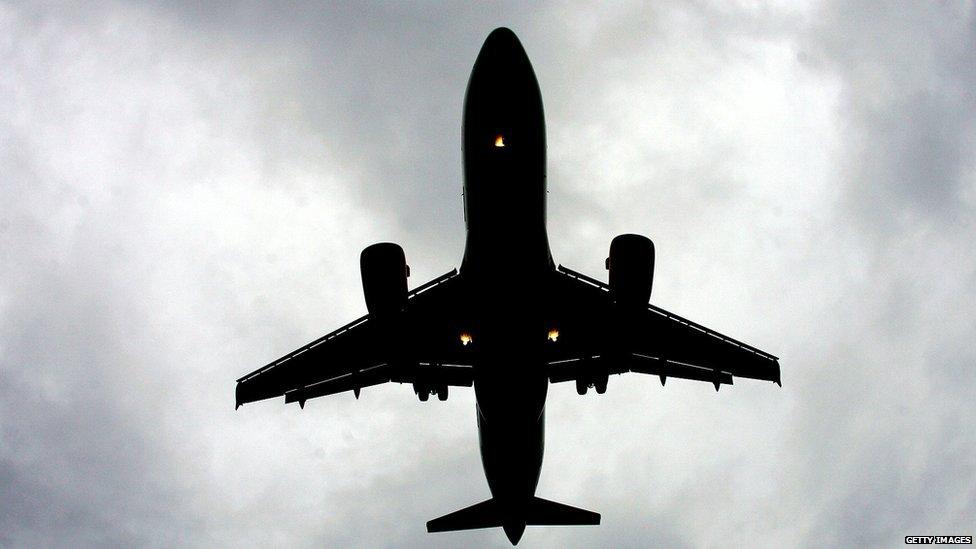
Age restrictions
When you're in the sky, technically there's no age restriction on buying alcohol. No official one anyway.
Individual airlines can choose their own rule but they usually stick to the laws of the country where they're registered.
So if you're with an American airline, you'll probably have to be over 21.
While you're on the ground though, the laws of the country you're in usually apply.
'One drink in the air is equal to three on land' - or is it?
According to the UK's flight regulator, the Civil Aviation Authority (CAA), low air pressure when flying effectively thins the blood.
That means the effects of alcohol can be stronger.
But some experts aren't convinced. They think you may feel drunk because flying conditions mean less oxygen gets into your brain.
Drinking limits
There's no specific limit on how much you can drink on a flight, but it is a crime to be drunk on board an aircraft.
Cabin crew have the right to refuse to serve alcohol to any passenger.
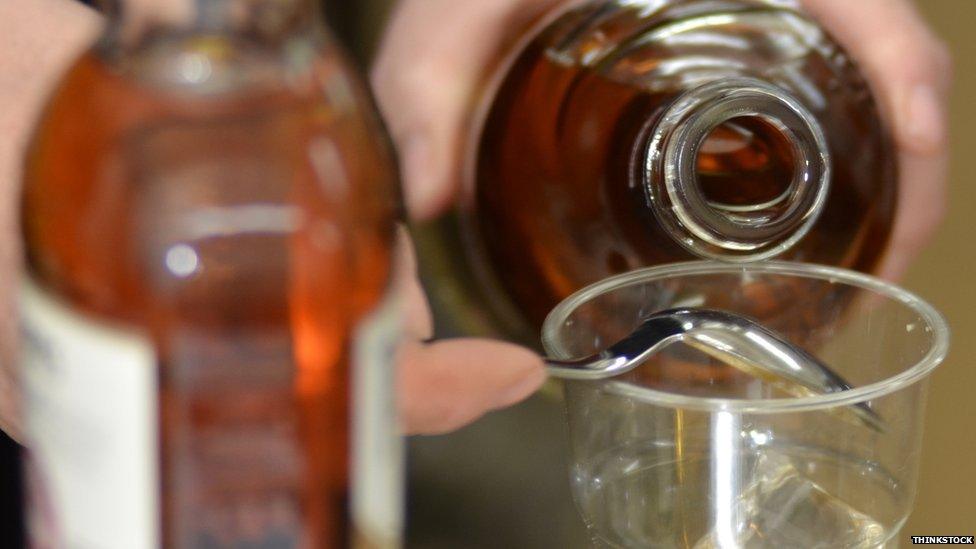
What if things get rowdy?
Airlines have a right to refuse to carry passengers if they think they're a potential risk to the safety of the aircraft, its crew or passengers.
That could include them being drunk or showing signs of having used recreational drugs.
It also applies to anyone using "unacceptable", threatening, abusive or insulting behaviour.
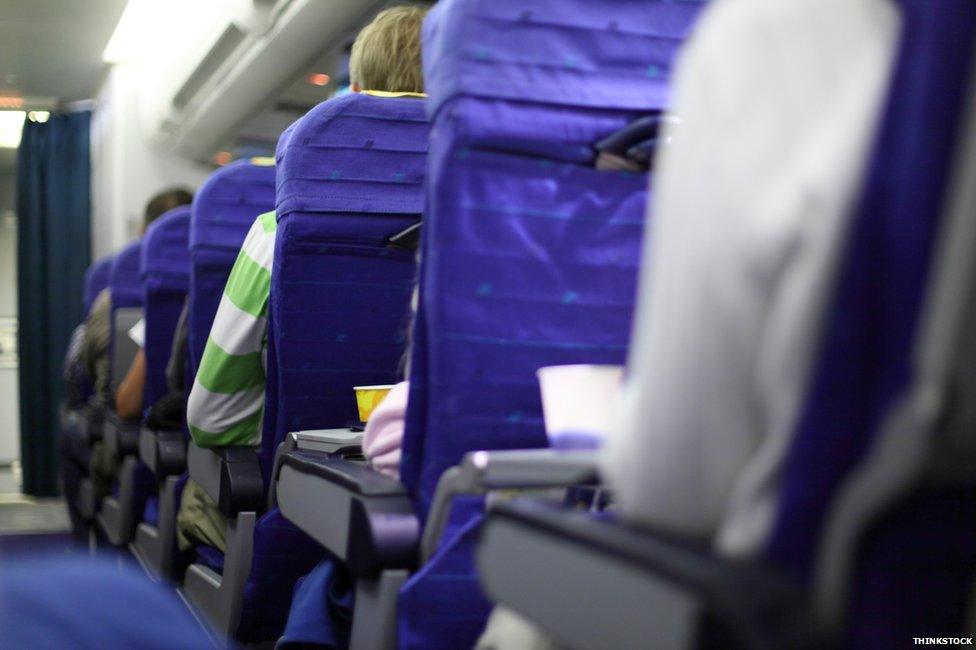
If the plane's already taken off it could land early and passengers can be escorted off by police on landing.
Serious offences could even lead to fines or prison sentences. Each airline has its own procedures for dealing with disruptive passengers.
How much alcohol can you bring back into the UK?
There are no limits on alcohol bought for personal use if you're travelling within the EU (although you might be taxed if you have a lot).
If you're coming from anywhere else in the world, the limit depends on the type of drink.
For beer it's 16 litres and for wine (not sparkling), four litres.
You can also bring one litre of spirits or liquors over 22% strength or two litres of fortified wine, sparkling wine and weaker alcohol.
Most airlines won't let you carry more than five litres or alcohol stronger than 70%.
If you go over that allowance you have to declare it and could pay VAT. If you don't declare it, it could be seized.
Alcohol over 24% needs to be in its original packaging.
Follow @BBCNewsbeat, external on Twitter, BBCNewsbeat, external on Instagram, Radio1Newsbeat, external on YouTube and you can now follow BBC_Newsbeat on Snapchat